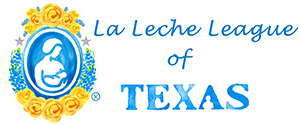Birth Weight, Bilirubin, and Blood Sugar: What do the Numbers Mean for Newborn Care Jennifer Thomas, MD, MPH, IBCLC, FAAP, FABM
Blood sugar, bilirubin and birth weight are among the most common reasons babies get supplemented with something other than their mother’s own milk. But without context, they are nothing more than random numbers flying through the air. In this session, learn why health care professionals should avoid acting on these numbers without first learning what they mean for each baby in context of their clinical picture.
Working Together: Communicating with Physicians about Breastfeeding Jennifer Thomas, MD, MPH, IBCLC, FAAP, FABM
Many providers learned surprisingly little about the medical benefits of breastfeeding and the importance of helping breastfeeding mothers meet their breastfeeding goals. Can well-intentioned but poorly-trained doctors actually derail a new mother’s breastfeeding efforts? This session will examine how important a provider’s guidance is to new nursing mothers, especially during those difficult first weeks and months of breastfeeding.
Navigating the First Two weeks: The Normal Newborn and Appropriate Supplementation Jennifer Thomas, MD, MPH, IBCLC, FAAP, FABM
Every species has instinctual behaviors that allow the little ones to grow up to be big ones and keep the species going. What is a normal term human infant supposed to do? Our babies are born into the world needing protection — protection from disease and protection from predators. This session examines and explains how a newborn baby at the chest gets both and why we need a good reason to supplement the newborn.
Unique Characteristics of the Late Preterm Baby Jennifer Thomas, MD, MPH, IBCLC, FAAP, FABM
The late preterm infant is a challenging infant to care for. Often, we treat them as if they are term infants, and we run into complications. In this presentation, we define the late preterm and explore the important differences from term infants. We will explore the evidence in caring for these infants to determine the best practices to support breastfeeding while avoiding the potential problems we know they have.
Breastfeeding the Baby with Special Needs: Babies with Down Syndrome Jennifer Thomas, MD, MPH, IBCLC, FAAP, FABM
We will learn first about normal muscle tone and see what a normal a swallow looks like, and then we will explore the challenges that infants with low muscle tone may face when feeding. We will look particularly at the challenges faced by families feeding a baby with Down Syndrome and how we can help.
Intersectional Lactation and Bringing Everybody to the Table Lourdes Santaballa, IBCLC, IYCFS, BA
The concept of intersectionality means that there are many systems of oppression and, while none should be ranked above another, they can overlap and affect our lives in different way depending who we are. La Leche League has traditionally been an organization that was created by and for dominant culture, but the knowledge that we own could greatly benefit families who are the greatest risks from not breast or chestfeeding. We will discuss systems of oppression, inclusion, who is missing at our meetings, and how to do meaningful outreach and inclusion work.
Emergency Response to Families with Infants and Young Children During Disasters Lourdes Santaballa, IBCLC, IYCFS, BA
This session will focus on existing policy for response to families with infants and toddlers to preserve breast or chestfeeding, relactating, or reducing risk with human milk substitutes and complementary foods during a disaster.
WHO Code: Understanding and Making the International Code Relevant Lourdes Santaballa, IBCLC, IYCFS, BA
After explaining the history and content of the World Health Organization International Code on Marketing of Breast [Human] Milk Substitutes, we will use mixed learning methods to identify situations where the Code applies and doesn’t. Additionally, we will also take objects that aren’t compliant with the Code and relabel them for everyday use in our work. The learners will be able to:
- Identify which products and situations are contemplated or not under the International Code.
- Integrate knowledge regarding the importance of relevance of all Code contemplated products as a method to promote lactation and prevent predatory marketing that undermines lactation.
- Relabel or visualize the relabeling of incompliant products so that they can be used with families when necessary without risk of violation of the Code.
The Impact of Prenatal Breastfeeding Support Leah Jolly, BA, IBCLC, RLC
Many families seek prenatal breastfeeding education which has been shown to improve breastfeeding outcomes. There are many factors that influence the effectiveness of prenatal education and support. In this session the presenter will review:
- Why is prenatal breastfeeding education so important and how does it impact breastfeeding outcomes
- What can we do beyond group classes to positively impact breastfeeding outcomes
- Techniques to foster self-efficacy
- The importance of screening for and education about the risk factors associated with Lactation Dysfunction.
Strategies to Support Pumping Families Leah Jolly, BA, IBCLC, RLC
Lactating parents choose to pump for a variety of reasons. Pumping can be periodic or exclusive. Pumping families benefit from working with breastfeeding helpers that have a thorough understanding of the unique support and guidance they need. The presenter will review:
- Reasons families choose to pump
- Types of pumps and selecting the right pump for each situation
- Proper flange fitting
- Techniques to help breastfeeding parents achieve comfortable efficient pumping
- Techniques to increase milk production when pumping
- Ways pumping can be used to help some breastfeeding situations
- Reasons why mother’s may struggle with pumping
- Counseling techniques to support a pumping family
IBCLC Support for TOTS in Breastfeeding Dyads Leah Jolly, BA, IBCLC, RLC
(Tethered Oral Tissues) like ‘tongue tie’ or ‘lip tie’ are frequently found in infants struggling with breastfeeding. IBCLCs play a unique role when breastfeeding families are seeking breastfeeding assistance with an infant suspected of or diagnosed with TOTs. The presenter will review:
- IBCLC’s scope of practice when TOTs are suspected
- IBCLC’s vital role in functional assessment
Marijuana and Breastfeeding Teresa Baker, MD
Explaining the role of endocannabinoids and transport of Cannabis into breastmilk, the effects of Cannabis on a developing fetus and the pharmacokinetic aspects of marijuana
Infant Risk: New Info on Medications while Breastfeeding Teresa Baker, MD
Review of how drugs transfer into breastmilk, clinical application of relative infant dose and discussion about the major classes of drugs and new studies published about them.
Postpartum Depression Teresa Baker, MD
Identifying risk factors and treatment options for PPD and reviewing the screening tools in use to diagnose it.
Patient Centered C-Section and Pain Control to Minimize Breastfeeding Difficulties Pamela Berens, MD, IBCLC
This lecture will review options to encourage patient engagement in cesarean delivery planning and ways to make cesarean delivery more patient and family centered. We will also review the options for postpartum pain control and how to limit adverse impact of pain control options on the breastfeeding infant while keeping mother comfortable. The metabolism of opioids will also be discussed.
Breast Complications During Breastfeeding Pamela Berens, MD, IBCLC
This lecture will review some of the common maternal breast complications that can occur during lactation. We will review common presentation and treatment strategies.
Breastfeeding with Maternal Medical Conditions Pamela Berens, MD, IBCLC
This lecture will review some common maternal medical conditions and how these conditions and the medications used to treat these conditions can impact breastfeeding.

